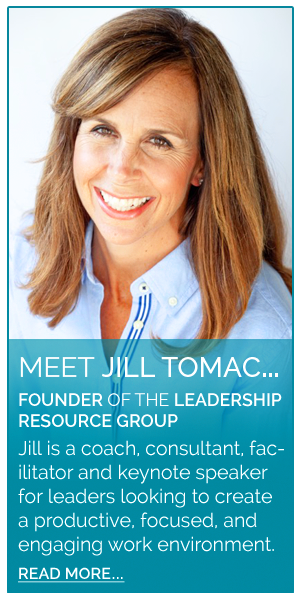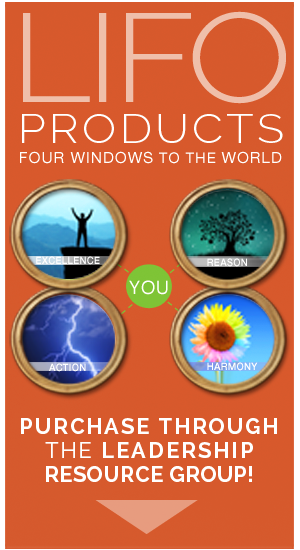“I’m convinced that about half of what separates successful entrepreneurs from the non-successful ones is pure perseverance”
~ Steve Jobs
What differentiates good from great is tenacity and persistence. When you fall down, it is the will to get back up that matters.
In today’s work environment, obstacles are unavoidable and failure is inevitable. The leaders that rise to the top are not those that avoid the challenge, but rather those that are able to overcome the setback and use the learnings to reach a new level of performance. Using the failure as a way to prepare for pitfalls in the future – to enhance communication – to identify process gaps – and look for new untapped possibilities.
Mistakes are a crucial part of the creative process. The most successful visionaries and creators have faced setbacks and failed. While risks do not always lead to success, they do lead to greater knowledge. And when persistence is evoked, it will eventually lead to breakthrough.
In other words, a real winner is one who knows how to handle losing.
Just look at Steve Jobs who had numerous failures including being fired from the company he created. Yet under Job’s leadership, Apple created the iPod, iPhone, iPad, and other iconic products that have changed the face of technology forever. Job’s life was riveted with failure. From dropping out of college … to getting fired from his own company [twice] … to being the creator of many unsuccessful ideas.
With each failure, he chose to apply the learning to the next attempt. He continued to look at the opportunity within the failure rather than the failure itself. As Jobs states:
“sometimes when you innovate, you make mistakes. It is best to admit them quickly, and get on with improving your other innovations.”
In fact, there are entire businesses built on “breaking things”, knowing that it takes many mistakes to arrive at the brilliant idea. The head of X [formerly Google X], Dr. Astro Teller, shares numerous examples of the unexpected benefits of celebrating failure. Teller’s projects seek to solve the worlds biggest scientific problems through experimental projects. His organization is based on taking big risks, making mistakes, and then making new designs based on the learning from the failure.
The list goes on and on with business icons that have failed over and over before finding their success. Breakthroughs require learning. And learning requires a certain amount of failure.
There are lessons to be learned when looking at how the most successful innovators and leaders use their resiliency to bounce back from failure.
Be Vulnerable
Successful leaders allow themselves to be vulnerable and recognize when something is no longer working. They are willing to admit fault, remain transparent, and use the mistake as an opportunity to shift gears. Howard Schultz, founder and CEO of Starbucks, faced this struggle after stepping down as CEO in 2000 while remaining Chairman of the Board. Shortly after he made this transition, Starbucks, one of the most recognizable brands, was facing failure in 2008. Yet, rather than blame the new leadership Schulz stated,
“even though I wasn’t the CEO, I had been around as Chairman; I should have known more. I am responsible. We had to admit to ourselves and to the people of this company that we owned the mistakes that were made. Once we did, it was a powerful turning point.”
Never Give Up
We all face adversity — we all fall down. It is not the failure that matters, it is how gracefully you pick yourself back up and use the information to make yourself stronger. Elizabeth Gilbert, author of Eat, Pray, Love, failed at getting published for nearly 6 years. Yet, she knew her beloved vocation was writing. In fact, the only thing she ever wanted to be her entire life was a writer. With each rejection letter Gilbert was faced with a choice — to give up or keep trying. She came to realize that she loved writing more than she hated failing – and this was the knowledge that allowed her to never give up.
Don’t Let Others Dictate What Is Possible
We all have critics — those who doubt our capabilities or tell us it can’t be done. Especially when you have big ideas or want to go where no one has gone before. People will challenge your intention. People may question the reality of your ideas. Yet, the most successful leaders and innovators are those who challenge the status quo and push beyond what anyone may have thought possible. As Steve Jobs eloquently states,
“your time is limited so don’t waste it by living someone else’s life. Don’t be trapped by dogma, which is living with the results of other peoples thinking. Don’t let the noise of other’s opinions drown out your own inner voice. Have the courage to follow your heart & intuition, they somehow already know what you truly want to become. Everything else is secondary.”
Take It One Step At A Time
Far too often we get ahead of ourselves. Spending too much time focusing on the long-term goals which ultimately creates a sense of overwhelm. Alternatively, by taking small, yet deliberate steps you are able to break down what could be an overwhelming goal and experience immediate success. All the while, moving you closer to your greater goal.
Years ago, I decided that one of my bucket list items was to complete a marathon – a 26.2 mile race. At the time, I was running no more than 3 miles a day. Had I initially become consumed by the ultimate goal, it would have been easy to psych myself out of the race. However, I turned my focus to the small achievable increments, increasing my mileage by just 1 mile every week. During my first week of training I just had to run 4 miles instead of my usual 3. As time went on, I was able to increase my increments by larger amounts, setting bigger goals that were still achievable. Maintaining focus on what was doable ultimately allowed me to achieve what I once thought was impossible.
Focus On What Matters Most
During a time of failure, it is important to regain focus on what matters the most. What do you love? What can you not live without? What is your greatest priority? Put all of your energy into that and you will find your way out. Author JK Rowlings shared during her Harvard commencement speech the benefits of failure on her and her writing. When she had hit rock bottom, experiencing the most imaginable failure and living one step away from homelessness, it allowed her to direct all energy into what matters the most. Her writing. Putting all of her energy into her writing, Harry Potter rose from the ashes. As Rowlings stated “What we achieve inwardly, will change our outer reality”.
“It is impossible to live without failing at something, unless you live so cautiously that you might as well not have lived at all — in which case you have failed by default.”
~ JK Rowling




